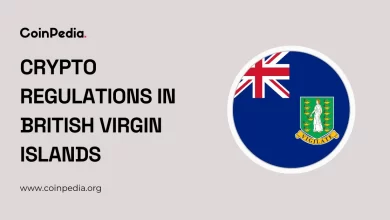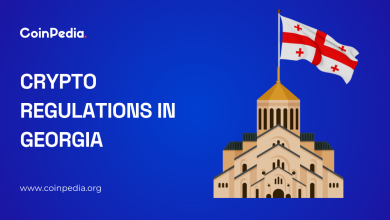
Cryptocurrency has revolutionized the financial landscape of the world. Government from across the countries are keeping up with the updates and introducing regulatory frameworks for monitoring the Cryptocurrency. Thailand is known for its growing crypto market.
In this chapter by Coinpedia, we will go through the basics of crypto regulations in Thailand in 2024.
Introduction
Being an early adopter of a regulatory framework for cryptocurrencies, Thailand is always looked upon! Cryptocurrencies are not considered as a legal tender in Thailand. The Royal Decree on Digital Asset Business, May 2018, calls crypto assets and NFTs as “digital assets’ ‘. Under this specification, crypto can be issued, traded or exchanged by digital assets business operators. This hinted that the Thai government is accommodative towards crypto-based assets. Digital assets are governed by The Securities and Exchange Commission, Thailand through the Royal Enactment on Digital Asset Businesses (REDA).
The Timeline
Crypto exchanges, brokers and dealers need to apply for licenses from the SEC Thailand. Local banks and financial institutions are still banned from direct involvement in crypto transactions.
The early stages:
2014: The Bank of Thailand issued a statement that Bitcoin is not a currency and it comes with risks.
2017: The UNOCS Regional office for Southeast Asia and Pacific had a meeting in Thailand in July, where Thailand wanted to strengthen its capacity to trace and investigate cryptocurrencies.
2018: Thailand took steps to establish a comprehensive regulatory framework, bringing clarity to the crypto realm. In May, 2018, the Thai ministry of Finance introduced an Emergency Decree on Digital Asset businesses, making it the first legislation to regulate digital assets and ICOs.
In June 2018, The SEC issued regulations for ICOs , mentioning licenses and thresholds for fundraising activities. Satang was the first exchange in Thailand.
2019: The SEC approved the first four crypto exchanges, providing a framework for their operations. They were required to comply with AML and KYC norms.
In July 2019, the SEC granted an additional license to a crypto brokerage firm , showcasing the government’s stance on a well-regulated crypto market.
2020: The SEC, Thailand, proposed new regulations requiring crypto exchanges to have a minimum registered capital of $1.6 million and minimum $1 million digital asset operation fund.
2021: Thailand SEC enforced mandatory identification verification for crypto trading accounts, further strengthening AML efforts.
June 2021, after the market collapse, the SEC prohibited meme tokens, fan tokens, NFTs, digital tokens which are utilized in a blockchain transaction and issued by digital asset exchanges or related people.
2022: Thailand was considering levying 15% tax on trading digital assets. Thailand made it mandatory for the operators to inform people about the risks and volatility of crypto before they proceed with crypto investments, thus tightening rules on crypto advertising.
In March 2022, Thailand issued rules to ban digital assets from being used to pay for goods and services from April 1, 2022.
2023: Thailand SEC banned crypto lending and staking services, as a measure to restrict some of the major DeFi products.
2024: Thailand SEC has implemented new crypto friendly regulations by removing investment limits for retail investors in asset-backed digital tokens and introducing stringent custodial wallet management rules. Previously, the retail investors were capped at 300,000 baht per offering in asset-backed ICOs.
In mid January, 2024, Thailand SEC lifted restrictions on digital token investments, indicating its crypto-friendly nature.
Also Read: Binance Opens Doors to Thailand’s Crypto Market with New Exchange Launch
The Latest Development
The SEC of Thailand was seen transitioning towards being more crypto-friendly. The updated framework was published in January, 2024.
- Digital asset businesses operating in Thailand are required to obtain licenses and comply with the rules set forth by the SEC
- The retail investors’ limit for asset-backed tokens has been removed. Previous rules had limited retail investors to 300,000 baht per offering in asset-backed ICOs.
- The establishment of dedicated entities for custodial wallet management has to be done.
- Firms looking to grow in the crypto field must first secure approval from the SEC.
- SEC has decided not to allow spot Bitcoin exchange-traded funds (ETFs) in Thailand.
Taxation Policies
In January 2022, Thailand announced 15% capital gains tax on profits from crypto trading. In March 2022, the Thai government reportedly exempted crypto traders from the mandatory 7% VAT on authorized exchanges while offering an exemption of up to 10 years for investors who invest for at least two years in crypto startups in the country.
Income earned from crypto trading or mining would be considered as capital gains and new rules enable traders to offset their annual losses against gains made over the same year.
Thailand is all set to tax overseas income from crypto trading from 2024, as per the latest report.
Conclusion
With the evolving crypto landscape, there is a new development everyday around the world. Thailand is also showing its crypto-friendly nature by passing laws in alignment with the crypto scenario. The recent updates in the country have indicated its pro-crypto gestures. Let us see what Thailand brings in for the crypto enthusiasts in near future!







